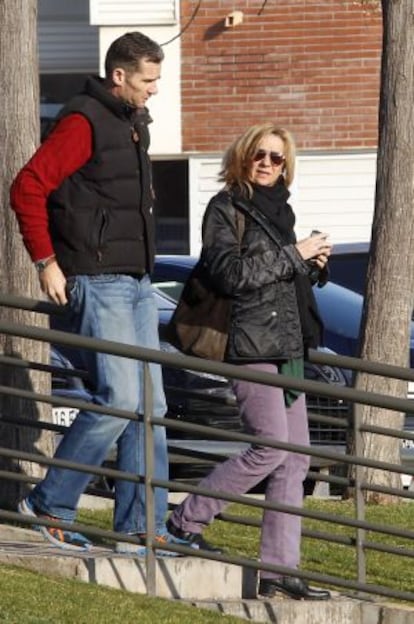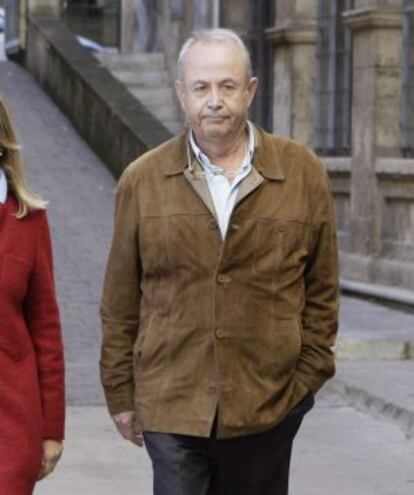King’s sister to stand trial for tax fraud
Judge makes decision based on evidence of Cristina's involvement in husband’s offenses

A judge investigating an embezzlement and tax fraud case involving the sister of Spanish King Felipe VI announced on Monday morning that Cristina de Borbón will stand trial for her alleged involvement in the offenses.
Judge José Castro has been investigating the business affairs of Iñaki Urdangarin, the husband of the infanta, as Cristina is known. He stands accused of siphoning off millions of euros in public funds awarded to his non-profit organizations.
The judge has decided to put Urdangarin's wife on trial for tax offenses, based on evidence that she may have cooperated in the same fraudulent actions in 2007 and 2008. Judge Castro is also asking for a €2.6-million financial liability from Cristina de Borbón.
The hearings could begin as early as the second half of 2015, in a Palma courtroom.
Besides the infanta, 16 other people will take the stand in connection with the Nóos case, named after the non-profit Nóos Institute that Urdangarin and his business partner Diego Torres allegedly used to secure contracts from the governments of Valencia and the Balearics.
One of the other defendants is Jaume Matas, who was regional premier of the Balearics when the contracts were awarded. The entire Nóos case is an offshoot of a wider investigation into Matas' wrongdoing in connection with the construction of a sports arena in Palma de Mallorca.
Urdangarin is thought to have used his influence as a member of the royal household to obtain lucrative contracts to organize sports events without any public bidding. He and Torres may have diverted as much as €6 million into private businesses.
After a failed first bid to make her testify in court in connection with the case, Judge Castro managed to interrogate the princess in February of this year, marking the first time in Spain’s democratic history that a member of its royal family has given testimony in a criminal investigation.
The trial announcement ends a four-year-long investigation and maintains the charges that were preliminarily filed against Cristina de Borbón in 2013, when Judge Castro argued that her 50-percent ownership of Aizoon made her a cooperator in the fraud.

Aizoon was a front company jointly owned by Urdangarin and his wife, apparently created to receive some of the diverted funds from Nóos. Cristina de Borbón used company credit cards to pay for personal expenses such as dance lessons and children’s clothing, then claimed them as business expenses in her tax filings, the investigation shows.
The infanta's defense has claimed that their client was not involved in her husband's business dealings and in fact lacked the financial know-how to have actively participated in the fraud.
This was also the position held by the anti-corruption attorney Pedro Horrach, who had a public, drawn-out confrontation with Judge Castro over the matter. Horrach repeatedly tried to prevent the infanta from testifying first, then from standing trial, arguing that she was not responsible for her husband's actions and that there is no criminal evidence against her.
Horrach and Castro, once a highly effective team in the persecution of political corruption in the region, have fallen out over the matter. The prosecutor accuses Castro of acting “inquisitorially” against the king’s sister “just because of who she is,” while the judge says that Horrach is treating the infanta deferentially also because of who she is.
The case further damaged the royal family's image and is thought to be partly the cause of Juan Carlos' decision to abdicate the throne in June of this year in favor of his son Felipe.







































